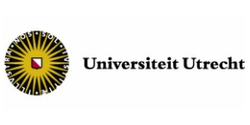PhD position in Responsible AI for Mental Healthcare
Updated: 18 Nov 2024
This PhD project is part of an NWO-funded KiC project: ‘Responsible Scaling of Data-driven Approaches for Enhancing Mental Healthcare’. You will collaborate with UMC Utrecht, as well as external partners including InfoSupport, E-health academy, Diabetesfonds, mental health institutes, MIND, and De Nederlandse GGZ. The Social and Affective Computing group conducts research into multimodal analysis of human behaviour and affect, and in responsible ways of computer-based analysis in mental healthcare.
Your job
As a PhD candidate you will develop responsible algorithms (fair, explainable and privacy preserving) to address clinical treatment questions such as those related to depression, mental health and diabetes.
In this project, we will use both structured and unstructured data from the clinical health records of (adult) patients stored in the e-health modules. By applying machine learning techniques in a federated, explainable and fair manner, we aim to responsibly identify patient profiles during different stages of the treatment trajectory that are associated with responses to specific treatment choices. The outcome is the development of novel, responsible algorithms and models that provide insights into which treatments produce what results for which patients.
Our work in the Social and Affective Computing group is highly interdisciplinary. In the affective computing domain, we collaborate intensively with academics and practitioners as well as institutions in psychology, psychiatry, and linguistics. In the social computing domain this ranges from sociology to international law and politics. This PhD position is the result of both political (e.g., the recently approved EU AI law), social and technological developments that require accountability, fairness and transparency of critical algorithms.
Requirements:
We are looking for collaborative candidates who have:
- a Master’s degree in computer science/engineering, artificial intelligence, mathematics, or a related field;
- interest or experience with processing of audio/acoustics, vision/video or natural language data;
- excellent machine learning skills, with a track record of coding in high-level scripting languages such as MATLAB, python or R;
- demonstrable coding skills in GPU-accelerated programming, such as using PyTorch library;
- comfort in doing multidisciplinary research and interacting with important stakeholders;
- curiosity on societal issues and how AI can be employed for the benefit of the public;
- eagerness to conduct innovative and thorough research;
- excellent English oral and writing skills.
We value candidates with a strong interest in research in affective computing.
Gender balance specifically, and diversity in a broader sense are very important to the Department. Hence, we encourage applications from women and individuals from diverse backgrounds.
Salary Benefits:
We offer:
- a position for four years;
- a gross monthly salary between €2,872 and €3,670 in the case of full-time employment (salary scale P under the Collective Labour Agreement for Dutch Universities (CAO NU));
- 8% holiday pay and 8.3% year-end bonus;
- a pension scheme, partially paid parental leave and flexible terms of employment based on the CAO NU.
In addition to the terms of employment laid down in the CAO NU, Utrecht University has a number of schemes and facilities of its own for employees. This includes schemes facilitating professional development, leave schemes and schemes for sports and cultural activities, as well as discounts on software and other IT products. We also offer access to additional employee benefits through our Terms of Employment Options Model. In this way, we encourage our employees to continue to invest in their growth. For more information, please visit Working at Utrecht University.
36 - 40 hours per week
Princetonplein 5

